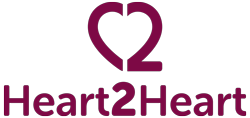Heart Transplants
Download this information sheet as a PDF
When a transplant is needed
A heart transplant is only offered to your child as a last resort – when no other form of treatment is available for his or her heart disorder:
- your child may have developed a heart disease – even though there are drugs that can support the heart muscle, sometimes it becomes too weak and the heart rate too erratic to pump enough blood for your child’s needs. This is the most common reason for transplant in children
- or your child may have been born with a heart defect and perhaps, despite several surgeries, the heart cannot support the body’s demands on it.
Assessment
Some children are admitted directly to a hospital for a transplant, but usually there will be an assessment first.
The assessment is usually carried out over several days. You and your child may find it a very draining experience as so much depends on the outcome. Sometimes test results will have been sent from another hospital, but often a series of clinical tests will be carried out. If your child is 16 or over the transplant may be carried out at an adult unit. There are only two hospitals that carry out children’s heart transplants in the UK – Freeman Hospital in Newcastle-on-Tyne and Great Ormond Street Hospital, London.
There is a transplant team at these hospitals who will look after your child and the rest of the family during the assessment, the surgery and the aftercare. The assessment is an opportunity for you to find out anything you need to know about the actual transplant surgery, the drugs that are used afterwards, the practicalities to do with accommodation, school life, dealing with employers, and coping with problems when you are home.
Even though there may be no alternative form of treatment, there is no guarantee that your child will be offered a transplant:
- If your child has other medical problems.
- If you as a parent withhold your consent.
- If your child withholds consent.
- If your child is too ill for the operation.
- If no suitable heart becomes available.
- If there is a child who needs the transplant more than your child.
Waiting for transplantation
Make sure you know who you should contact if your child’s condition deteriorates – this may be the transplant hospital, or it may the cardiologist (heart doctor), social worker, cardiac liaison nurse, or any other health professional who looks after your child.
You may want help with preparing a child, particularly an older child who needs to understand this treatment before giving his or her consent.
Waiting for a suitable organ to become available can be very hard – you may be issued with a bleeper so that you can be contacted as soon as your child needs to go to the transplant unit. It is not unusual for there to be one or two false starts – perhaps because the donor organs are not suitable, or your child is too poorly to undergo the operation.
The transplant team will have explained the risks that your child is taking, either to you or to your child if he or she is old enough to be offered the consent form. You too should develop a full understanding of the degree of commitment a transplant needs.
Obtaining organs
When an organ becomes available anywhere in the country, the duty office at UK Transplant is notified immediately. If your child is the top priority, he or she will be offered the heart if it is the right size and the right blood group. Hearts that become available in other European Union countries can be offered here as well. To find out more about UK matters affecting organ donation please see www.gov.uk.
Mechanical support is now available so that a child whose heart has failed can be kept alive while an organ is being found. If your child becomes very ill and is over one year of age, he or she may be offered ECMO (extra corporeal membrane oxygenation) – a complicated heart and lung bypass machine which can keep a child alive up to several weeks. Or a VAD (ventricular assist device), which works like an external mechanical heart, can be used.
The surgery
As a parent you, and where possible your child’s other parent, and the child for him or herself will need to consent to the surgery.
To prepare your child’s body for a new organ, he or she will be given anti-rejection drugs – these suppress the immune system which will otherwise attack and damage the new heart. If, as usually happens, the new organ comes from another hospital it is examined for damage or deterioration. If the donor died in the same hospital, the organ is removed a short time before your child has been prepared to receive it.
The operation can be a few to several hours – for example, if your child has had other surgery, it may be more difficult to control bleeding so the whole procedure takes longer.
After surgery
It is not uncommon for a child to pick up an infection, such as a chest infection or infected wound, while undergoing surgery and intensive care. Some children also react badly to some kinds of medicines.
Most children recover very quickly. Your child will have a scar down the middle of the chest, and there may be small scars where drain tubes were used. These fade very rapidly in most children, but they will not go altogether. Smaller scars on the hands and neck usually fade away to nothing.
For the first few days after surgery, your child will be in an area that is kept as infection free as possible. During this time your child’s drugs will be adjusted.
Physically, your child will be encouraged to get out of bed as soon as possible, and to eat and drink as normal.
There are often short periods when rejection (the body’s attempt to damage the new heart) occur and need to be treated immediately.
You may be able to stay with your child in a family flat near the hospital to learn how to cope with the drugs in a domestic setting before you go home.
Once home your first concern is going to be keeping your child away from infections, maintaining the stock of drugs, and getting back for hospital appointments, plus all the usual calls on your time – surprisingly busy after the time spent waiting around in the hospital.
Drugs used for children after transplant are improving constantly, but side effects can include:
- Increase in body hair – this can improve after six months or so, and can be dealt with using depilatory cream
- Rapid weight gain if steroids are used – again worse in the first few months
- Shaky hands – in the early months
- Swollen gums
- Nausea
- Psychological problems – with having another heart, or with scarring for example
Every child is different, and there is no point in looking for trouble when it may not be going to happen – but if you think there is a side effect, ask the transplant team for guidance.
Use the resources of Heart Transplant Families Together (see details below) to talk to parents who have been through these experiences.
Blood tests have to be taken to monitor the level of anti-rejection drugs. These may be frequent initially, and then every few months – you may be able to arrange for these to be taken at a local hospital or by community nurses. Ask the hospital to liaise with your Primary Care Trust Team (GP, Health Visitor etc) if you can’t find a way to sort it out yourself.
If your child is of school age there may be some problem about reintegrating him or her. Ask your child what they want their school friends to know, and who should tell them. Many children do not want to have a transplant discussed until they have got used to the idea themselves. The school needs any information that will keep your child safe – eg how to handle what could be an acute rejection episode – and any other effects of a long illness, such as being behind with schoolwork.
Some children find it hard not to be the centre of attention, especially if they were very ill for a long time. The transplant team psychologist should be able to suggest a way of dealing with this kind of problem.
Some parents find that other children in the family become more problematic, difficult and uncooperative. Asking members of the family, especially grandparents, to give other children special time can save them from feeling they have been ignored.
The hardest thing that many families have to deal with is the belief other people may have that, with a new heart, your child’s troubles are over. Transplantation is not a cure – it is the swapping of a life threatening scenario for a medically managed condition. In fact you will be realising that medical intervention will go on throughout the child’s life, and his or her future is uncertain. This realisation must be weighed against the fact that a transplant was only undertaken as a last resort because it gave your child not just a chance to survive, but also the opportunity of a good quality of life. You may consider whether you would like to make contact with other families who have also experienced their child being an organ donor recipient. Some families share that this brings them inspiration and support. Contact A Family is a group who have established a family linking service for parents whose child has a medical condition and also provide a family linking service.
About this document:
Published: October 2014
Reviewed: June 2017
Due for review: June 2019
Evidence and sources of information for this CHF Factsheet can be obtained at:
NHS Choices
Heart transplant
www.nhs.uk/conditions/heart-transplant/Pages/Introduction.aspx
NHS Choices
What happens during a heart transplant
www.nhs.uk/conditions/heart-transplant/Pages/Surgery.aspx
To inform CHF of a comment or suggestion, please contact us via info@chfed.org.uk or Tel: 0300 561 0065.









